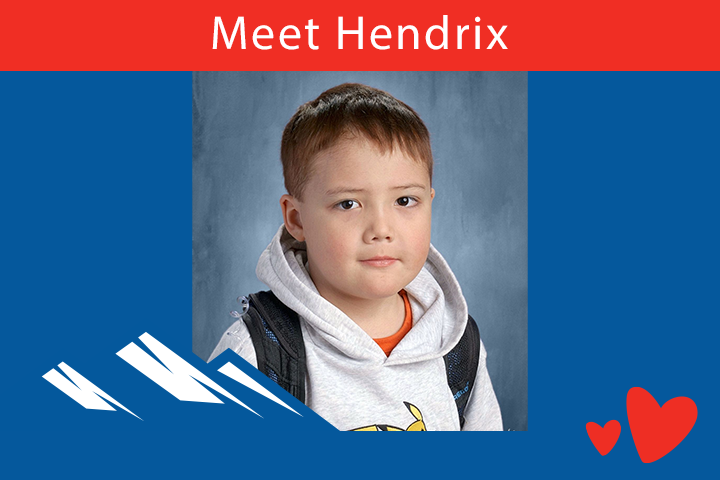For 14 years, Nicole worked as an oncology nurse at the Alberta Children’s Hospital. It was impossible to believe that one of her children would require care on the unit she worked on all those years.
Last August, after a couple days of fever that turned into a sore tummy, Nicole thought her six-year-old son Hendrix might have appendicitis. She headed to the Alberta Children’s Hospital Emergency Department to get it checked out. Seeing how tired and pale he was, the docs called for bloodwork. When an oncology colleague walked in and sat down, Nicole knew the news wasn’t going to be good. Her brain went a million miles an hour when he said it was definitely leukemia. How could this be? Hadn’t she earned some sort of exemption after all her years of helping kids with cancer??
Very quickly, she and Tyler had to come to grips with Hendrix’s treatment protocol and all that their family was going to have to navigate over the next 2.5 years. Her colleagues on the unit overwhelmed them with support – which they needed. Those first few weeks were really hard as Hendrix endured countless IV pokes and needles.
Only a few weeks before Hendrix was diagnosed, a new immunotherapy drug called Blinatumomab (aka Blina) became part of the standard of care for children fighting his disease (acute lymphoblastic leukemia). Clinical trials proved that survival rates rose to 97 percent and this was great comfort to Nicole and Tyler, in spite of the fact that it added an additional eight weeks to his treatment.
Blina is administered as an infusion over the course of two 4-week cycles. Children are hooked up to an IV pump that they carry in a small backpack for the entire time. At first, Hendrix wasn’t sure if this was a good idea, but it didn’t take long for him to realize that it was better than having to be in the hospital. Soon he was back at school with his backpack resting on a chair beside him. At night, the backpack was tucked into bed with him.
Trending Now
Did Trump wake ‘sleeping giant’ of ‘Buy Canadian’? Why some won’t budge
Donald Trump Jr. accused of killing rare, protected bird on trip to Italy
Nicole is grateful that this advancement in care has come along in time to help her son. There is still a long way to go, however, it gives her hope for future patients that new drugs like Blina that have much less toxicity will be available to help children who are diagnosed in the future.
While she has always known that the oncology program at the Alberta Children’s Hospital is one of the best, Nicole is seeing first-hand how the compassionate and expert care of the team she’s worked with for over a decade is saving her sons life.


